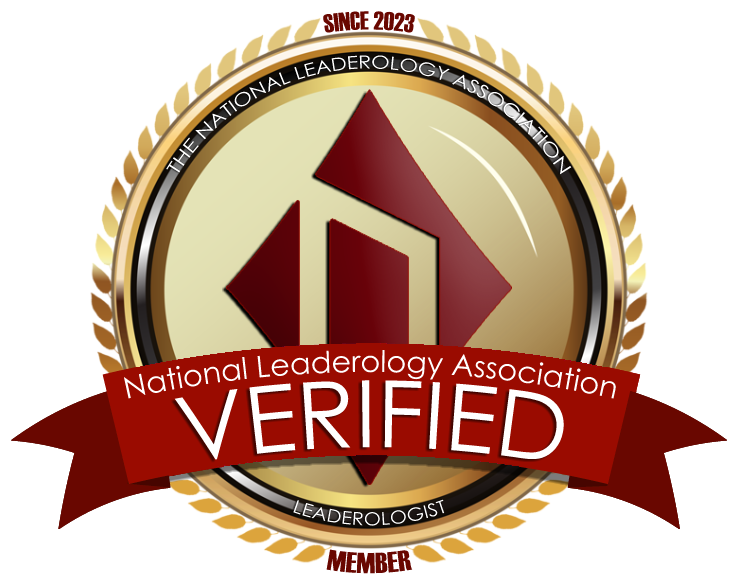
Leadership Education Standards
The following standards equate to an NLA-approved institution in the field of leadership education:
Curriculum Design
An NLA-approved program must demonstrate a comprehensive, structured, and scientifically grounded leadership curriculum that includes:
-
Curricular Scope and Structure
A well-designed curriculum covering strategic leadership, organizational behavior, ethics, communication, decision-making, cultural dynamics, cognitive aspects of leadership, and other scientifically relevant areas. -
Learning Objectives and Outcomes
Clearly articulated learning outcomes for every course and program, aligned with the development of essential leadership competencies, including cognitive, behavioral, ethical, analytical, and interpersonal dimensions. -
Integration of Theory and Practice
Balanced incorporation of theoretical and practical components, including case analyses, simulations, experiential learning, practice-based projects, leadership diagnostics, and real-world application. -
Management Coursework Limitation
Management-related coursework may support breadth of knowledge but must not exceed 30 percent of the total curriculum in any program labeled as leadership or leaderology. -
Core Leadership Coursework Requirements
-
Bachelor’s Degree:
Approximately 40–50 percent of coursework must be dedicated to foundational leadership principles, including leadership theory, history, organizational behavior, communication, decision-making, ethics, and interdisciplinary leadership studies. -
Master’s Degree:
Approximately 60–70 percent of coursework must emphasize advanced leadership theory, organizational change, leadership ethics, global leadership, developmental theory, and specialized leadership applications. -
Doctoral Degree:
Approximately 70–80 percent of coursework must focus on advanced leadership constructs, complex systems leadership, leadership cognition, interdisciplinary theory integration, and methodological training.
-
-
Electives and Concentrations
Elective pathways or concentrations must deepen expertise in specific leadership sub-fields, including but not limited to organizational leadership, strategic leadership, sports leadership, healthcare leadership, nonprofit leadership, or military leadership. -
Research, Capstone, and Applied Inquiry
Programs must dedicate 10–20 percent of total coursework to capstones, applied research projects, or thesis work demonstrating mastery of leadership science. -
Doctoral Dissertation Requirements
Doctoral programs must designate 20–30 percent of total program effort to original research that contributes meaningfully to the leadership knowledge base. Dissertations must employ empirical, theoretical, or methodological rigor consistent with social science standards. -
Program Orientation Note
Programs intending to prepare graduates for predominantly managerial roles should incorporate additional management coursework and may be better classified as management degrees rather than leadership or leaderology degrees.
Faculty Qualifications and Expertise
-
Academic Qualifications
Faculty must hold advanced degrees in leadership or closely aligned social science disciplines. Preference is given to individuals recognized as Leaderologist I or II, whether formally verified or not. -
Demonstrated Expertise
Faculty must show evidence of competence in leadership theory, research methodology, leadership practice, and interdisciplinary scholarship. -
Professional Development
Faculty must engage in ongoing development to remain current with emerging research, trends, and advancements in leadership science.
Assessment and Evaluation
-
Evaluation of Student Outcomes
Programs must utilize rigorous assessment methods including examinations, research projects, applied assignments, presentations, diagnostics, and reflective evaluations. -
Program Evaluation and Continuous Improvement
Institutions must implement regular review cycles informed by data from students, alumni, employers, and external stakeholders. -
Alignment with Leadership-Specific Accreditation Expectations
Programs must demonstrate quality assurance processes consistent with standards for a scientific discipline.
Industry Partnerships and Experiential Learning
-
Real-World Application
Institutions must collaborate with organizations, community partners, and industry leaders to provide meaningful practical experiences, internships, or applied leadership projects. -
Professional Networking Opportunities
Programs should provide structured opportunities for engagement with leaders across sectors through guest lectures, seminars, conferences, and leadership forums. -
Global and Technological Integration
Curricula must demonstrate awareness of technological advancements, global contexts, and evolving trends relevant to leadership practice.
Research and Scholarship
-
Faculty and Student Research Engagement
Programs must encourage active participation in leadership scholarship, contributing to the advancement of leadership science. -
Publication and Dissemination
Institutions should support faculty and students in publishing research and presenting at conferences or scholarly gatherings. -
Community and Disciplinary Engagement
Active participation in leadership communities, collaborative initiatives, and interdisciplinary research is expected.
Review and Refinement
These standards constitute the baseline requirements for NLA approval. They are reviewed periodically and refined as necessary to reflect the ongoing evolution and scientific advancement of leadership and leaderology as a discipline.
Review A Sample Leadership Curriculum
Updated: 12/8/25

